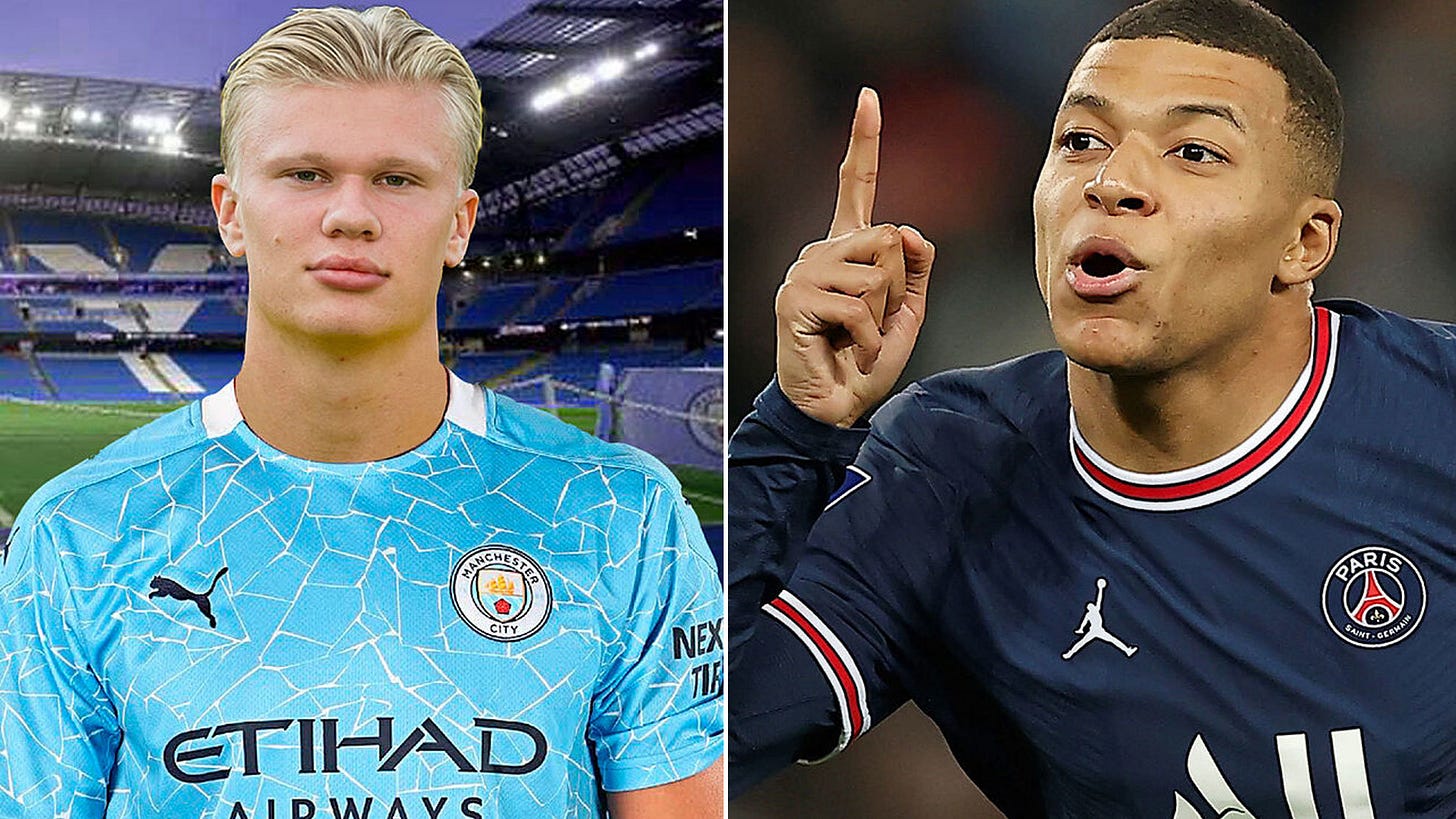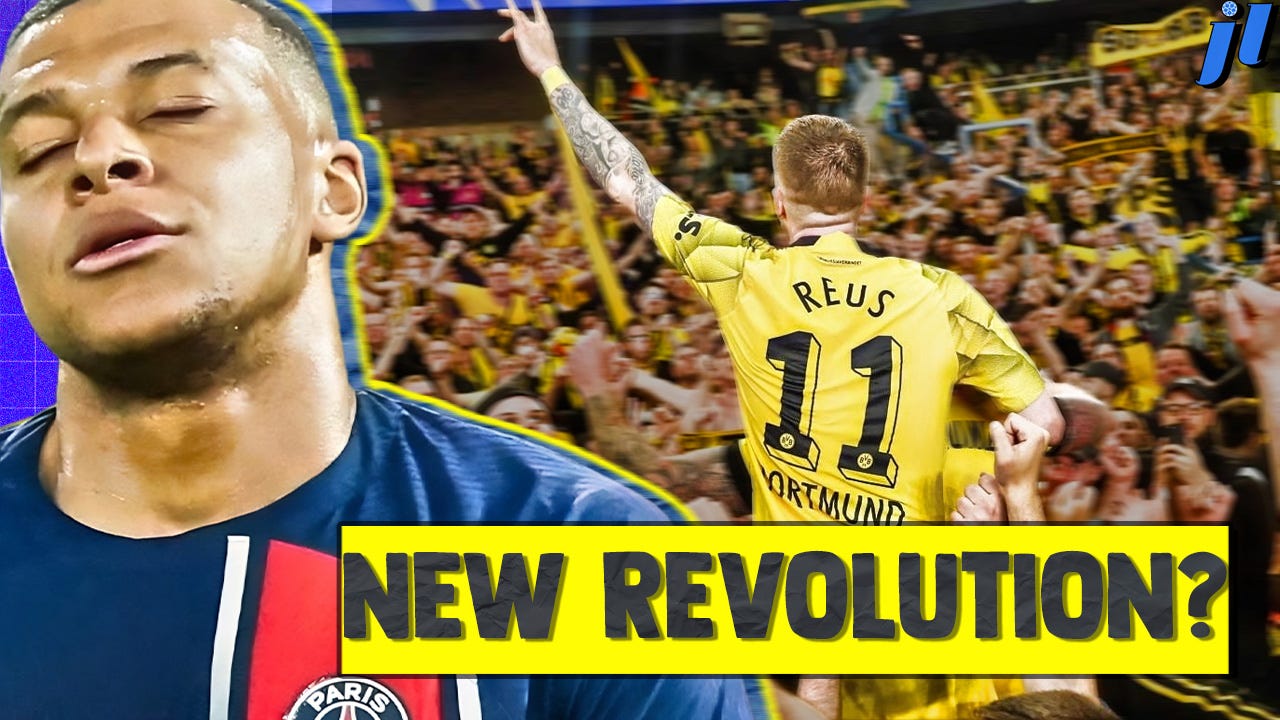This was the year when the richest clubs owned by nation-states with their ridiculous spending were outplayed by teams that thrived on something far more ephemeral and powerful: heart and soul.
Saudi Arabia aren’t in the final, Qatar aren’t in the final, the UAE aren’t in the final.
This feeling has been brewing where it felt inevitable that there would a time in the not-so-distant future when the best clubs in the world were only the ones spending the most money.
And I’m about to go on a bit of a rant, but stick with me because it does come back to football. Life right now feels like a heavy weight. My generation will be the first in American history to be worse off than their parents. It's hard not to feel animosity towards the system when having two working parents can barely make it by when I know my dad could have been a shoe salesman and supported a full family with a beach house, retirement, and college. Soccer for me has been one of the last bastions of meritocracy and that has been chipped away. The entry of clubs like Paris Saint-Germain and Manchester City, backed by the enormous wealth of nation-states, into the footballing world, is emblematic of a broader trend in global economics. It is a trend characterized by crony capitalism, where the lines between state and business blur, creating environments where success is often hinged on how much money you can pay to bend the rules.
The uneven playing field is a daily reality—one that restricts access, limits opportunities, and stifles competition. The encroachment of this reality into sports and especially soccer makes it feel as if there are few corners of the world untouched by the reach of inequity.
So to know that all of the nation state clubs and even some that aren’t owned by a government entity yet but instead by billionaires may still lose is such a cathartic feeling. Even without Dortmund being a historical bastion for American players, I still felt a release, a tension unwind at the final whistle of the parc de princes.
Borussia Dortmund specifically embodied this narrative perfectly. They entered the Champions League with seemingly nothing but the scars of domestic disappointments—limping, directionless, and visibly worn. But as the season progressed, they transformed these scars into badges of honor.
In the Champions League, Dortmund was a team reborn. Their campaign, marred by struggles in the Bundesliga where they will likely finish an unremarkable fifth, contrasted sharply with their European exploits. Like in the Champions League they were relentless, a completely different squad.
Their journey to the Champions League final was nothing short of a footballing miracle - on par with Leicester or even the domestic champions this year in Germany Bayern Leverkusen. The Dortmund side that stumbled in domestic competitions was unrecognizable in Europe. They exhibited a collective spirit that seemed to grow stronger with each round. This spirit was vividly on display in their quarter-final clash against Paris Saint-Germain, a club emblematic of football’s new money era.
At the Parc des Princes, Dortmund delivered a performance that was all at once a tactical masterclass, a display of gritty determination, and sheer luck. Edin Terzic, their coach, devised a plan that was as simple as it was effective: deny space, disrupt play, and counter when possible. His team executed this plan with precision, particularly neutralizing the 12 year old wunderkind (that’s a joke btw) Kylian Mbappe, who found himself isolated and ineffective against the Dortmund defense.
The game ended 1-0, courtesy of a decisive goal from Mats Hummels, marking a 2-0 aggregate victory that silenced the Parisians on their home turf. It was a result that spoke volumes, not only about the tactics but also about the heart. Dortmund's posts rattled, their crossbar quivered, but their resolve never broke.
Dortmund’s road to the final at Wembley was a narrative of redemption and resilience and equity. It echoed the days of Jurgen Klopp, who had last led them to such heights eleven years prior. While no one claimed this team matched the charisma and quality of Klopp’s squad, there was a sweet anomaly in their current journey, a charm in their unexpected success.
Players like Julian Ryerson and Jadon Sancho emerged as unsung heroes, embodying the team's work ethic. Ryerson, in particular, stood toe-to-toe with Mbappe, a testament to Dortmund’s defensive grit. Sancho, celebrated for his offensive skills, showed a commendable defensive commitment, something we would never expect to see from him while at Manchester United.
Beyond tactics, it was the heart displayed by Dortmund that should captivate you. In a sport increasingly dominated by financial muscle, Dortmund’s journey was a reminder of the game’s intrinsic unpredictability and the enduring value of team spirit over fiscal firepower.
Marco Reus, a symbol of Dortmund’s past glories and recent struggles, encapsulated this spirit. Announcing his departure at season’s end, Reus returned as a substitute in crucial moments, demonstrating the same commitment that had made him a club icon. His presence on the field was a reminder of not just his journey, but how much has changed in the world around him since his path began.
As Dortmund celebrated their triumph against PSG, their fans, who had traveled from the industrial Ruhr Valley to the opulent streets of Paris, experienced a surge of raw, unfiltered joy. Their cheers were not just for a victory in a football match but for a victory of values—of perseverance, unity, and resilience.
This season, Dortmund’s story is not alone. Bayer Leverkusen may yet go undefeated on their way to winning a European cup and even now both of these stories will speak to your human spirit.









Btw. Dortmund wouldn’t be Dortmund without it’s fans which is the soul of the club. Fans in football (soccer) are there for the life time journey, because they go through the best and worst together. Through promotions and relegations.
Even with all those money pumped into football recently, there is still fundamental reason for the game popularity worldwide - that underdog through hard work and smart strategy can win it all. Again behind it there is promotion and relegation system, merit system.